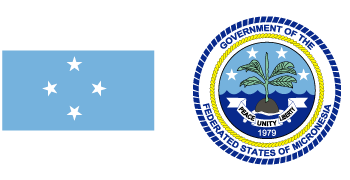-
KEY POLICIES
This Agriculture Policy, which is the conclusion of a participatory consultative process among a wide range of stakeholders across the four states, provides the basis for action by both public and private sectors to invigorate sustainable agriculture growth in the Federated States of Micronesia. It recognizes the major role played by traditional farming systems and the impact of socio-cultural realities.
Work on the Strategic Development Plan (SDP) started late in 2003, as the FSM entered a new phase of its development with the implementation of the amended Compact. While the new fiscal procedures required the FSM to transmit a Strategic Development Plan to the U.S. to provide the framework on which to base the annual requests for the Compact sector grants, the FSM more importantly required a process to identify its development strategy for the new era.
In 1995 and 1996 the FSM and four states underwent the first round of Economic Summits and participatory planning process. The Summit process was initiated to achieve broad-based understanding and consensus for reform measures needed to adjust to the changing economic circumstances facing the FSM. Most importantly the FSM was preparing for the large declines in Compact funding resulting from the second step-down. The nation was also beginning to consider the implications of the Compact economic assistance negotiations that were looming on the horizon.
The four State Tourism Investment Plans are presented in this Volume 2 Report using the same format and layout to provide the following information: justification for undertaking the Plans; methodology for collecting the information; an overview of tourism development in each State; an outline of each State’s investment policy; an outline of the legislation affecting tourism investment and development in each State; a list of current infrastructure projects; and an action plan that describes the status of each of the identified tourism investment projects.
-
SUB SECTOR STRATEGIES
Under Development
-
LEGISLATION AND REGULATIONS
Under Development
-
STATISTICS
-
USEFUL RESOURCES
Under Development
-
KEY POLICIES
-
SUB SECTOR STRATEGIES
Under Development
-
LEGISLATION AND REGULATIONS
Under Development
-
USEFUL RESOURCES
Under Development
-
KEY POLICIES
-
SUB SECTOR STRATEGIES
Under Development
-
LEGISLATION AND REGULATIONS
Under Development
-
USEFUL RESOURCES
Under Development
-
KEY POLICIES
-
SUB SECTOR STRATEGIES
Under Development
-
KEY POLICIES
-
SUB SECTOR STRATEGIES
Under Development
-
LEGISLATION AND REGULATIONS
Under Development
-
USEFUL RESOURCES
Under Development
-
Download Other Documents
Work on the Strategic Development Plan (SDP) started late in 2003, as the FSM entered a new phase of its development with the implementation of the amended Compact. While the new fiscal procedures required the FSM to transmit a Strategic Development Plan to the U.S. to provide the framework on which to base the annual requests for the Compact sector grants, the FSM more importantly required a process to identify its development strategy for the new era.
In 1995 and 1996 the FSM and four states underwent the first round of Economic Summits and participatory planning process. The Summit process was initiated to achieve broad-based understanding and consensus for reform measures needed to adjust to the changing economic circumstances facing the FSM. Most importantly the FSM was preparing for the large declines in Compact funding resulting from the second step-down. The nation was also beginning to consider the implications of the Compact economic assistance negotiations that were looming on the horizon.
The four State Tourism Investment Plans are presented in this Volume 2 Report using the same format and layout to provide the following information: justification for undertaking the Plans; methodology for collecting the information; an overview of tourism development in each State; an outline of each State’s investment policy; an outline of the legislation affecting tourism investment and development in each State; a list of current infrastructure projects; and an action plan that describes the status of each of the identified tourism investment projects.
Prepared for publication at SPC’s Suva Regional Office
Suva, Fiji, 2015





















CONNECT WITH US